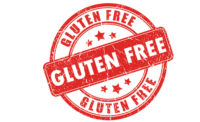
For every action, there’s a reaction. In some cases, there’s even an overreaction. When it comes to the topic of obesity however, it’s difficult not to react in some way.
While some Americans place blame on parents and schools, others, including the government, turn to quick-service restaurants, fast-food joints and even bakers and snack food producers to “clean up” their menus and product portfolios.
But what is the appropriate way to react when it comes to obesity? And where do we begin?
Where is the line of regulation and how do we as a nation manage it?
The new dietary guidelines are projected to be revised and released this month, and all we know is that food manufacturers are urged to “clean up” their products. However no one has been prepped for the outcome of some of these changes.
For every action, there’s also a consequence.
For instance, the government is looking to crack down on the production of fatty foods. What happens to the donut producers whose business thrives on producing fat-filled products? What happens to the companies whose livelihood of the operation and its employees depends on these soon-to-be “non-existent” products?
Let’s face it, our nation is fat because it wants to be, not because it has to be. Producers have been offering fat-free and portion-controlled products for a handful of years now, yet as our nation’s population continues to grow, so does its waistline.
According to several industry experts, bakers and manufacturers, the problem isn’t so much the types of foods that are produced as it is the way that Americans consume them.
In talking to several of my teacher friends, some kids, especially in the youngest age bracket, only eat healthy when they’re in school. Sad, but true.
But when it comes to imposing restrictions and regulating mandates, the government needs to take a step backward before lunging two steps forward.
It’s a bit cumbersome to ask a donut producer to cease formulating donuts or find an alternative, healthier product to develop when a majority of consumers still eat donuts.
Even the most health- and exercise-conscious consumer needs a little bite of heaven from time to time.
While the government issues mandates for how companies should operate and what products they should produce, they also should provide education and tools that guide certain companies along the path of providing healthier products. Likewise, schools and camps should be equipped with health classes that teach kids how to eat instead of what not to eat.
Furthermore, how are companies supposed to react? What happens next? What if a company cannot afford to upgrade its machinery so it can produce fat-free products?
The root of the obesity problem may not be that Americans eat fatty foods. It may simply be that we eat fatty foods all the time. We as a nation need to understand and be cognoscente of how to eat, live and act healthier, and it goes beyond just eliminating high-fructose corn syrup from our diets or switching from regular to fat-free products.
We only have ourselves to blame for the obesity epidemic, but at the end of the day, that’s not enough to curtail the problem.
It will however take a ton of reaction and even a dose of overreaction to really slim down the obesity epidemic.



